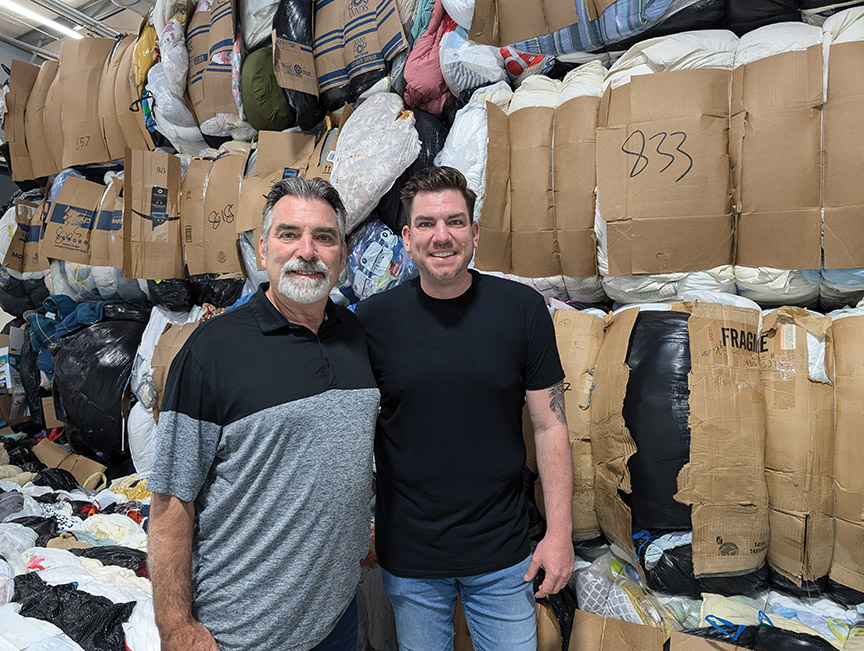 Ken Whitten, left, and Joe Whitten (Photo by Matthew J. Mowry)
Ken Whitten, left, and Joe Whitten (Photo by Matthew J. Mowry)
Joe Whitten, an Army veteran, was inspired by his father’s years of service as a missionary to find a way to positively impact the world. Over the years, while working in sales for tech companies, he tried and failed at launching 10 different businesses, learning from each. “I was good at failing,” he jokes.
Then he heard about a company in California that collected used clothing destined for the landfill and sold them to other businesses that could resell or repurpose them. The business model with a mission spoke to him. Whitten did some research and learned clothing was the fastest growing waste stream in the country. “That was 10 years ago, and it has only grown,” Whitten says.
In 2014, he launched Apparel Impact, printed up pamphlets and hit the streets of Manchester, going door-to-door to find people with clothes they wanted to get rid of. He even convinced his father, Ken, to join him in the business. “I wanted to build a brand that is trusted and does the right thing,” Whitten says.
A decade later, it is evident that commitment is working. Apparel Impact now generates millions in revenue, while, in 2023, diverting 10 million pounds of clothing, shoes and textiles from landfills. It employs 41 people and has 1,400 collection bins in more than 300 municipalities in five New England states (except Rhode Island) as well as New York. It acquired competitors in New York and Vermont in 2021 and 2022.
Whitten projects the company will grow sales by 40% this year. He expects the next phase of growth will be driven by building drop off centers that will not only collect clothes and textiles but can also be drop off centers for bottle and can recycling for municipalities. The centers may even host charging stations for electric vehicles, Whitten says. Apparel Impact built its first center in Haverhill last year and is currently negotiating locations for two more centers.
“This could cement us as a brand,” he says. “I want to be the largest textile recycler in the country, which is where we’re going.”
